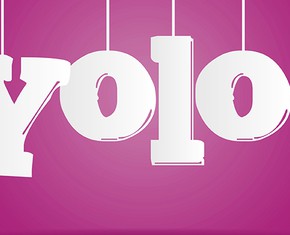The views expressed in our content reflect individual perspectives and do not represent the authoritative views of the Baha'i Faith.
A kindly tongue is the lodestone of the hearts of men. It is the bread of the spirit, it clotheth the words with meaning, it is the fountain of the light of wisdom and understanding. – Baha’u’llah, Epistle to the Son of the Wolf, p. 15.
This Baha’i quote, along with several others, changed my life. Not magically, of course, but by influencing the way I looked at words and the way that I used (or abused) them.
Baha’u’llah’s wise counsel made me more conscious of the power of words, more conscientious about how I gave them expression, and more circumspect as to their effect. This transformation did not happen overnight. But it did happen over time.
When I first read this sagacious yet simple aphorism, I was profoundly struck. Why? Because it gave new meaning to the idea of “meaning” itself.
Tongues utter words. This is obvious. But tongues themselves do not have meanings. Words do.
Every word — at least each word that has wended its way into the dictionary — clearly has one or more meanings. Every word inherently possesses a “lexical” definition or set of definitions. So how can a word that has a defined meaning lose its meaning? Words without meaning? Sounds like an oxymoron — doesn’t it?
To complicate matters, how can a word actually gain meaning? Isn’t the definition fixed, carved in lexical stone, inexorably adamantine? Doesn’t the meaning remain the same, whether spoken softly or harshly, independent of all emotion? So I meditated on this passage by Baha’u’llah. And this is what occurred to me:
With rhetorical allure, Baha’u’llah employs an engaging metaphor — that of magnets. He writes that a “kindly tongue is the lodestone of the hearts of men.” The word “lodestone” simply means a “magnet” — not an artificial one, but a natural one, such as magnetite or any other naturally magnetized mineral.
Like a lodestone or a magnet, a kindly tongue — and the mellifluous words it imparts — mollifies rancor and draws in the listener. Its affect has great effect. The hearer responds, rather than reacts.
Now let’s take the metaphor of the magnet and polarize it, or reverse it, by reading the exact opposite of what Baha’u’llah is saying. Permit me to take the license of offering this converse reading: A mean tongue is the repeller of the hearts of men. … It strips the words of meaning. It is the source of contention and misunderstanding.
These are my own words, of course, and not to be confused with the majestic words of Baha’u’llah. My point in taking the contrary meaning of this passage is simply to demonstrate Baha’u’llah’s teaching — that words have greater meaning if spoken in kindness, because they have the power of attraction.
Mean words hurt. (Know what I mean?) Phrasing fazes. Words spoken are degraded when degrading the person spoken to. Words retain their lexical definitions, yet lose their meaning, if mean-spirited. Barbed words dull their points.
So why not give this a try: Show compassion toward passion. Answer the fire of anger (whether your own or someone else’s) with the warmth of understanding — acknowledging the problem, ascertaining the need, reducing the frustration, and affirming the value of the relationship — before offering your own opinion.
I’ll close with a related passage by Baha’u’llah. This quote is from a celebrated selection of the Baha’i writings popularly known as the “Tablet of the True Seeker” (part of the Book of Certitude, which Baha’u’llah revealed in two days and two nights in January 1861):
For the tongue is a smoldering fire, and excess of speech a deadly poison. Material fire consumeth the body, whereas the fire of the tongue devoureth both heart and soul. The force of the former lasteth but for a time, whilst the effects of the latter endureth a century. – Kitab-i-Iqan, p. 193.
 Again, permit me to suggest what the obverse of this cautionary admonition implies: For the tongue can be a brilliant light. Material light lasts for but a short time, while the effect of latter can endure a century.
Again, permit me to suggest what the obverse of this cautionary admonition implies: For the tongue can be a brilliant light. Material light lasts for but a short time, while the effect of latter can endure a century.
Think about how you felt, as a child, when someone said some very kind words to you. Isn’t it true that you remember and cherish these words, after all these years? Isn’t it also true that the kindly tongue — the kindly soul — who spoke these words clothed them with greater meaning? If so, isn’t this proof, in your own life experience, of the truth of Baha’u’llah’s words of wisdom?
So take to heart Baha’u’llah’s counsel — “A kindly tongue is the lodestone of the hearts of men” — and clothe your words with greater meaning. Kindliness magnetizes words, charges them with greater significance, attracts the listener, enhances communication — and makes you look and feel better. And of course, it doesn’t hurt the speaker, either.
Purpose affects purport. Tone tempers tenor. Kind words unite. Unkind words divide. Kindness is an art. You are the painter, and the painting. Color your words — your world — with soft tones and enhanced effect.
















Comments
Sign in or create an account
Continue with Googleor